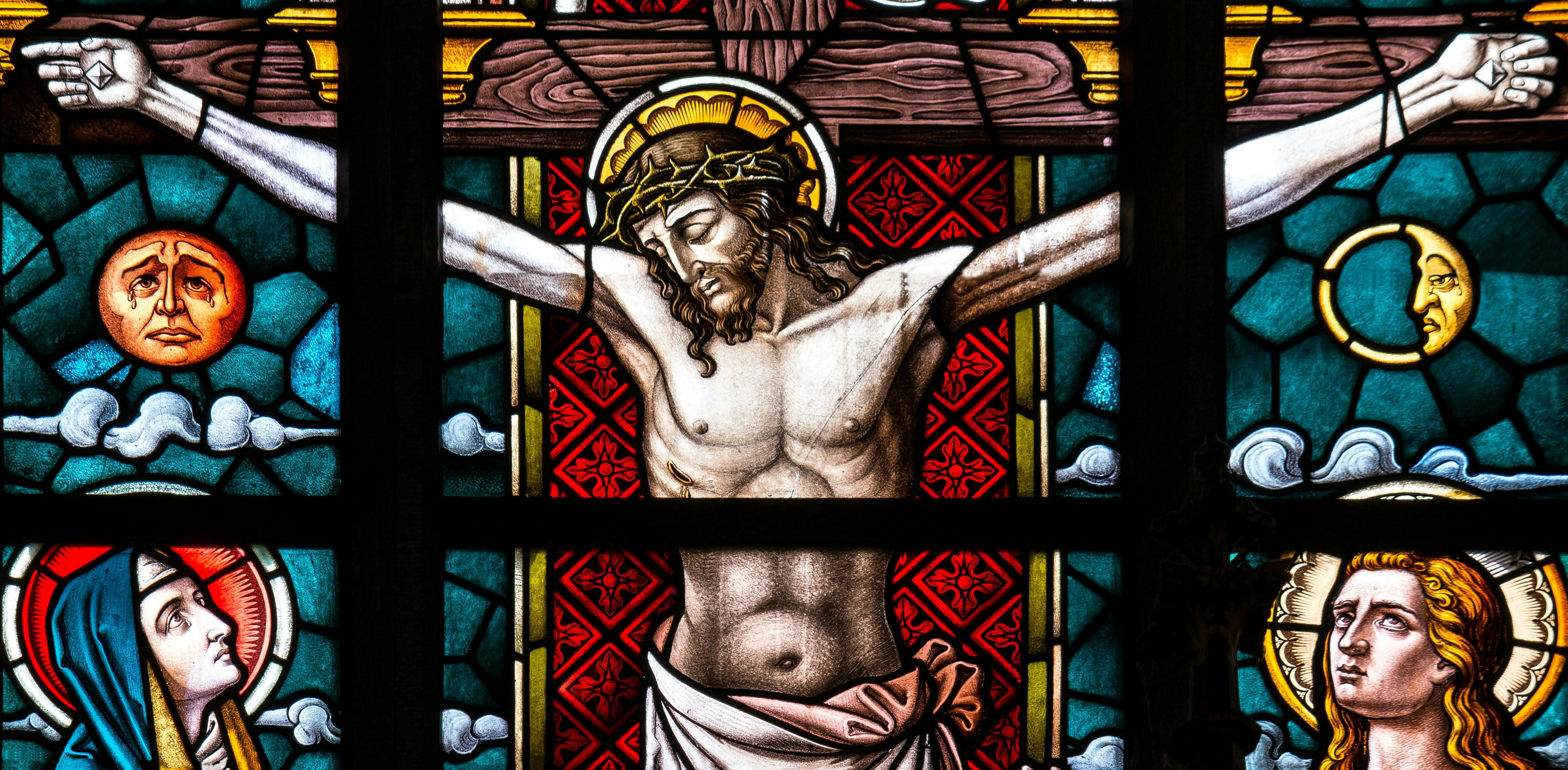
By god, we mean an omnipotent, omniscient, and morally perfect being.
Growing up in a place where everybody around you believes in God and puts forward religious arguments is impactful. Listening to people say that this being is real for decades would no doubt change their minds. This is why the kids of religious communities are more likely to grow up to be religious as well. This is only human and healthy too. So many other beliefs work the same way. For example, children usually carry their parents' political views too.
This is not an issue at all. Parents influence their children; we already knew that. However, this becomes a problem when the children start to believe their parents without questioning or thinking on their own. Eliminating critical thinking is the issue here, which is harder than it sounds, especially for religion, where changing your mind may seemingly cage you into never-ending pain and anguish.
The good thing is that most probably there is no afterlife and pain in the afterlife too. It is not impossible to take a chance on this perspective, even with years of religious influence. Looking at the arguments atheism suggests and either responding in a logical manner or trying to find a response may either help you strengthen your faith or realize that it doesn’t fit your own worldview. Both are crucially valuable.
One idea to keep in mind is that you may feel like any one of the below arguments may not be enough to disprove the existence of a god. However, the fact that there are this many, and even more arguments to be made against the existence of religion, is what creates the strongest argument.

The Evidence for the Existence of God
The first argument is that there is no empirical evidence for the existence of god. You may have heard that someone saw Jesus in your lifetime; maybe someone else heard Jinns talking, or the charm you used really worked. The problem with these claims is that there is no evidence. People believe that astrology is real, but how many of them can tell the sign of a person they met correctly? It is probably around 1/12. In a scientific world, stories don’t really mean anything. Otherwise, we would think that there are monsters under the bed, the Ness monster is real, or Michael Jackson is still alive. What could be really useful is a video, photo, or a peer-reviewed scientific article done by scientists.
When you think about it, it is not a really far-fetched idea to ask for scientific evidence from an omnipotent god. It should be possible for a god to convince people with evidence very easily. Which brings us to our next argument.

The Argument from Evil
Maybe god doesn’t want to prove its existence. Maybe he enjoys seeing people go to hell. Or simply, he just doesn’t care. The argument from evil suggests that the existence of pain and evil is incompatible with the existence of god. It goes like this:
If there is an omniscient god, it knows when there is evil. If there is an omnipotent god, it can stop evil. If there is a morally perfect god, it doesn’t want evil or pain. There is evil and pain in the world we live in.
So the god is not omnipotent and omniscient and morally perfect. Or he doesn’t exist.
We assume the god to be omnipotent and omniscient and morally perfect. So he does not exist.
One argument people suggest against this is that maybe he wanted a chance for people to show that they are worthy of heaven. But everyone does not have the same chance. Isn’t it easier for someone to be religious if they are born into a religious family? In a religious culture, a person can be supported and celebrated if they choose to believe in god, but in an atheist culture, wouldn’t they encounter more resistance?
We can do one better: wouldn't it be easier for a baby that lived for one day to go to heaven than an old person that lived 80 years? If the chances are not equal, what is the point of having a chance?
Or, how can the suffering and death of a cat because of a wound in the middle of nowhere, for example, be justified? Personally, I don’t have any answers to this. I don’t think it can be justified.
The Argument from Design
Most religious people use this argument to justify believing in the existence of god. It suggests, in a nutshell, that as it is valid to assume that there is a designer of a spoon, it is also valid to assume that there is a designer of the universe. Science still doesn’t know what is outside the universe, so it is difficult to disprove this argument for a while. However, this idea is similar to other arguments people made in history when they encountered something they didn't know.
The people who didn’t know anything about bacteria thought the Black Death was a punishment from god. Greeks thought Zeus was throwing thunderbolts from Mount Olympus when there was a thunderstorm, whereas the Norse thought it was Thor swinging his hammer. People thought epilepsy, which we know is caused by neurons in the brain changing their firing rhythm, was caused by demonic possessions or by a god’s punishment. We now know all of these are false.
Science is not yet perfect; there are still many things we strive to solve and find out. The scientific method is relatively new, after all. So, of course, there are going to be things we can’t explain. However, it is important to look at these problems and believe that they can be solved, rather than say it's god-given. Because otherwise, we would not have any motivation to improve as humanity and find the cause behind these. If there weren’t people who thought there might actually be a tangible cause behind epilepsy, for example, there wouldn’t be medications designed to treat this condition, and so many people would have suffered unnecessarily.

Guessing Game
It is possible to guess a culture's religion depending on the geography of the place they live in. This is mind-blowing.
For example, people who lived in dry, hot desert environments like Judaism or Islam imagined a hell that was hot and filled with fire. Communities that lived in cold environments, like Norse or Siberian traditions, imagined hell, the worst place they could imagine, as freezing cold. Cultures that live in plant-rich areas, like forests or animals, have religions that are animistic and focus more on nature. For example, North American tribes believed that trees, rivers, or animals had spirits. In Japan, on the other hand, mountains or rivers are considered sacred.
When we think of the possible desires and experiences of the people that lived in a particular place, we see that their gods align with these desires. This implies strongly that these religions are the creation of the human mind.

Contradictions
The last thing to discuss is that no religion is perfect. There are many contradictions in every religion. For example, in Christianity, the Bible openly condones slavery in Leviticus 25:44–46:
“Your male and female slaves are to come from the nations around you... You can bequeath them to your children as inherited property and can make them slaves for life.”
Which we now know to be extremely inhumane and insane.
In Islam, the Quran contradicts itself. In Bakara:256, it says, "Let there be no compulsion in religion..." Further, in At-Tawbah:9, it says, “...kill the polytheists ʽdwho violated their treatiesˇ wherever you find them, capture them, besiege them, and lie in wait for them on every way...”
In Judaism, the contradiction is with the foods. In Leviticus 11:7, it says, “Pigs are unclean. Don’t eat them.” On the other hand, Genesis 9:3 suggests, “Everything that lives and moves will be food for you...”
There are so many more of these contradictions with every religion. Even though these religions have multiple explanations about these verses, it doesn’t change the fact that these books are not as clear as they should be. An omnipotent god could do way better.
There are so many reasons to believe in god. It helps with coping with difficulties in life by giving hope that everything is going to be better. It creates a sense of community. It satisfies the need for justice in an unjust world. However, if you want to know the truth and answer the question with facts rather than believe without valid reasons, the answer is probably not.
We don’t know if there is no god, so if you want to believe there is one, you totally are justified to do so. But know that it is more like believing that when you toss a coin, it will fall on its side, jump to your shoulder, whisper “You smell really nice” in your ear, and fall back on its face. There is no proof that this can’t happen, but is this a good enough reason to believe that it can?